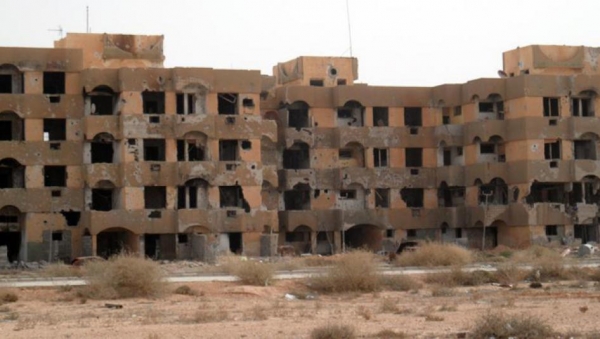After the 2011 uprising against Libyan leader Muammar Gaddafi, over 40,000 people from Tawergha, Libya were forcibly displaced by armed militias from the nearby city of Misrata. The militias labeled Tawerghans as Gaddafi loyalists, given that Gaddafi’s troops were once based in the town. Fearing persecution, many Tawerghans fled to neighbouring cities, such as Benghazi. For over seven years, Misrata militias have destroyed Tawergha’s infrastructure, making it nearly impossible for Tawerghans to return home.
In September 2018, Human Rights Watch visited Tawergha to confirm reports of widespread looting and destruction. They found that almost all public facilities had been demolished, including underground electricity cables, water distribution tanks, schools, and the only hospital. Additionally, over 7000 residential buildings had been destroyed by arson and looting. Not to mention, Tawerghans who attempt to return to the devastation are often harassed at the checkpoint. Thousands of Tawerghans tried to return in both June 2013 and February 2018, but as of December 2018 merely 100 Tawerghan families inhabit the town.
Tawergha’s Local Council and The Government of National Accord’s Education Ministry have taken small steps toward making the town inhabitable once again. As of December 2018, a wire was laid over the ground to power the lights along the main road, temporary cell phone coverage was installed in a nearby gas station and 10 containers were provided as temporary schools. Additionally, reconciliation agreements were brokered in both August 2016 and June 2018 by Tawerghan and Misratan officials. However, a prohibition on free speech within the 2018 reconciliation charter has received criticism from both Tawerghans and international human rights groups. Nevertheless, the agreements have been unsuccessful in ensuring the safe return of Tawerghans to sustainable living conditions.
Due to the extensive damage and insecurity, Human Rights Watch has called on the International Criminal Court and the Government of National Accord to bring justice to Tawerghans.
To know more please read:
https://www.hrw.org/news/2019/01/24/libya-displaced-population-cant-go-home




